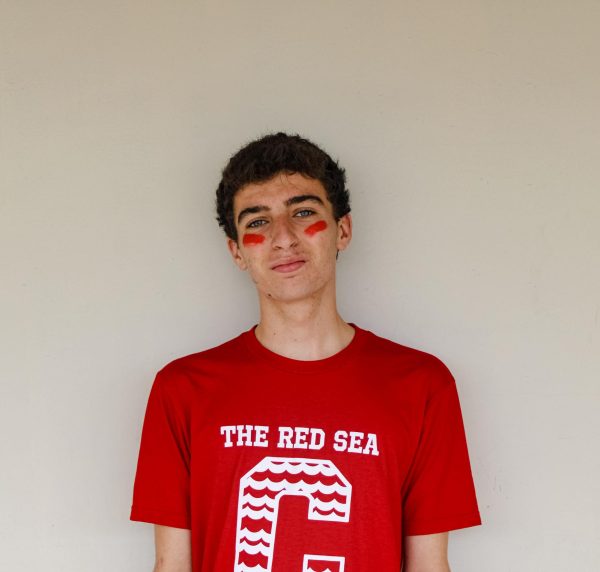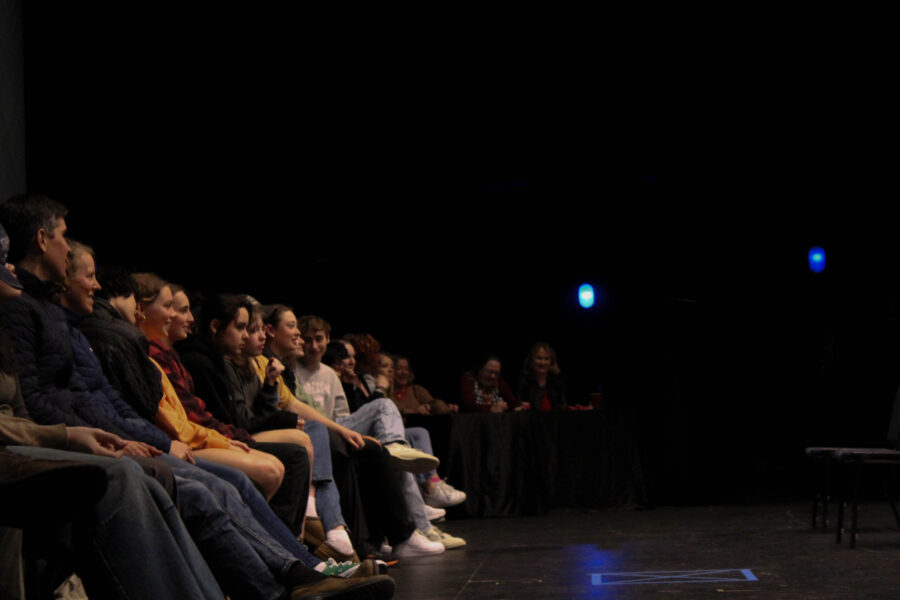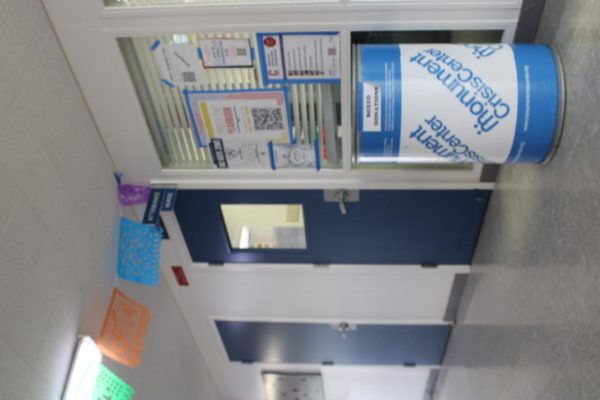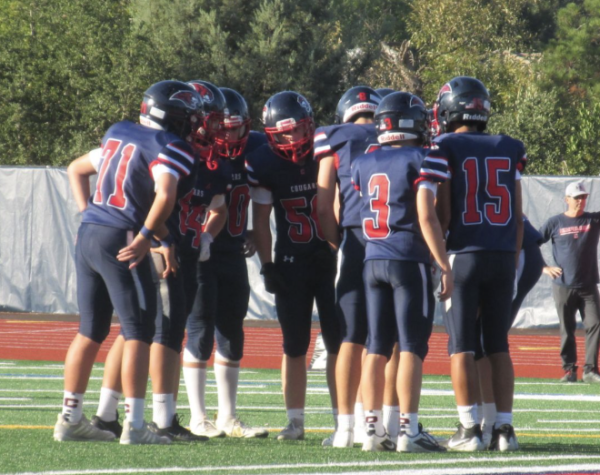Drama Class Performs Riveting Improv Showcase
On the nights of March 24 and 25, the drama students performed an annual Improv Showcase directed by Drama teacher Chris McNevin, rendering their audience winded from laughter at Campolindo’s very own theater. A highly amusing presentation, students exercised a challenging ability in eliciting entertainment based on audience participation.
The presentation was thoughtful in encouraging a high level of interaction, as audience members were placed in seats facing the performers and furniture props both on the stage.
“If you’re not performing on the stage, you’re sitting on couches. We try to make it as relaxing as we can for us which is nice because there’s a moment where you’re in the spotlight and your adrenaline’s pumping but then you can sit down, laugh a bit, and be finished performing,” senior Truitt Eglin said.
McNevin asked the audience a series of questions to generate an abundance of creativity to start, later integrating these ideas into the production. Some examples include, “Where wouldn’t you find humans?” and “What location would be a bad place to take on a date?”
“We want the show to be a very personal interaction between the actors and audience so we can be communicating with them,” said Eglin.
After briefly preparing the students, McNevin introduced a bowl with pieces of paper with well-known improv games for the audience to pick from. Each sheet included guidelines for students to follow. Three judges were given the ability to award points to individuals based on the amount of laughter produced. Consisting of two teams equipped with captains, performers divided themselves into the Cat Girls and the Dog Boys.
Judges on the first night included English teacher Jake Donohoe and history teacher Thomas Renno. The second night had staff member Stephanie Sliwinski as well as a few Special Education teachers.
“The judges and McNevin were able to ease some tension when it built up,” said senior Kenneth Greenwell. “They’re part of the performance and help increase faculty involvement. It’s not about actually giving points or who gets them, but rather should be seen as just part of the experience,” McNevin explained.
The show was set to end after 90 minutes and a “square square” section marked on the floor was utilized to contain potentially inappropriate behavior by students. Performers that violated this rule were expected to stand in the designated space and beg their audience for forgiveness, ensuring a family friendly experience as well as entertainment.
“We do improv in class on occasion throughout the year as warmups or days to take breaks from other projects and community build[ing]. Leading up the showcase we would do nothing but improv and run through the games and exercises, stopping and talking about how to improve and connect better,” said McNevin.
The first game was “World’s Worst” in which students were expected to pantomime anything’s worst of the audience’s choosing. Performers stood in a line and individually stepped forward to say or act their funny personal rendition of the chosen topic: the world’s worst parent.
“Responding on the spot makes you think on your feet. One of the biggest things we work to improve while we’re practicing is working with your peers and being able to bounce off of eachother comedically with timing and understanding,” Eglin described.
McNevin blew his whistle to end each act after everyone was out of ideas. Judges debriefed and gave points in between games.
“A huge part of performing in general is expressing yourself. It was a really comfortable environment so interacting with the audience felt really natural,” Greenwell explained.
Alphabet Improv proceeded as two people were called up from each team to create a conversation with words starting with the letters in successive alphabetical order. Given a scenario to build from, actors had to work with each other in fabricating a relatively sensible and humorous performance.
Next was Lines You’re Not Likely to Hear. A rather self explanatory act, students stood in line and spoke in turn according to each subject thrown at them.
The Emotional Rollercoaster act involved two people creating a scene after the audience provides a scenario as a guideline to follow. During the performance, the audience shouted emotions they wanted to see such as “more sad” or “more romantic” as students changed the direction of the scene.
“I definitely get more stage fright from improv than I do performing in something that’s been planned out to the second, but one of the biggest parts of doing improv is knowing that it’s not going to be perfect and that’s not what we’re aiming for. Freezing up and messing up is just part of the experience and it’s about picking yourself back up,” said Greenwell.
Another game called What Are You Doing required two people to perform different actions given two letters to work with. One person asks “what are you doing?” and the other answers with a pantomime using words beginning with the designated letters. Each person trades off actions as the cycle continues.
After came the Dating Game where three personalities were assigned to each person while a fourth was tasked with the ability to figure out what personality they demonstrate behind a closed door. The fourth person is also forced to choose one to take out on a date at the end. The three on the other side of the door act like the personality they were assigned and answer questions as their characters as the fourth formulates the questions.
The final act was Party Quirks as three people were assigned personalities and one person was the host of the house party. Each person is let in at the door before they all interact in character. The party host determines each personality at the end.
At the time limit, judges concluded the performance with an overall point score and recount of the actors’ funniest moments. McNevin ended with a bow and the audience returned home seemingly lighter than they walked in.
“Improv forces students to trust one another and forces them to understand one another about how to build off of eachother in terms of the concepts and ideas. It also teaches students how to help each other when they get stuck in a moment and can’t think of anything, building teamwork,” said McNevin.
Your donation will support the student journalists of Campolindo High School's The Claw. Your contribution will allow us to produce more issues and cover our annual website hosting costs.

(he/him)
Senior Sebastian Whitfield has been an avid photographer for the last 5 years. Hoping to make use of 1 of his favorite hobbies, Whitfield joined...





